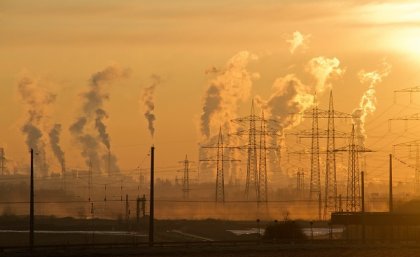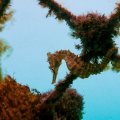
All eyes will be on Glasgow over the first two weeks of November as world leaders meet at the most important international climate summit in the past decade.
The COP26 summit is considered by many to be the last opportunity for world leaders to agree on a plan which would avert catastrophic global warming.
The University of Queensland has a range of experts available to offer analysis.
Dr Belinda Wade
Dr Belinda Wade can provide comment on the challenges of transitioning to net-zero for organisations; growing expectations of organisational action from both employees and from within society; and the need to move beyond setting net-zero targets to taking decarbonising action.
“Corporate leadership on the issue is rightfully being applauded but given the scale of the change required we need to rapidly convert targets into concrete and transparent action. So, what is needed to make net-zero a reality? A significant mobilisation of capital will be required to fund the construction of the low carbon assets and their supporting infrastructure,” she said.
Contact: b.wade@uq.edu.au
Professor Andrew Griffiths
Professor Griffiths can provide comment on how organisations deal with the impacts of climate change, and how executives and employees can transform organisations to better manage sustainability issues. Andrew can also provide information on how local and global organisations can apply new knowledge emerging from COP26.
Contact: a.griffiths@bel.uq.edu.au, +61 7 3365 6204.
Dr Andrea La Nauze
Dr Andrea La Nauze can comment on alternative policies to reaching agreed targets and the impacts on households. Andrea’s expertise is in how households respond to policy changes, particularly in terms of technology adoption and energy consumption.
Contact: a.lanauze@uq.edu.au, + 61 422 792 468.
Professor Ian Mackenzie
Professor Ian Mackenzie can provide comment on carbon trading and carbon offsets. He specialises in environmental and resource economics, the economics of climate change, and environmental policy, mining, pollution regulation and recycling as it relates to economics.
“To decarbonize we need, at the federal level, the establishment of an economic instrument to mitigate pollution. Yes – I mean the dreaded return of carbon pricing. It is well known among economists that the best way to reduce greenhouse gases in a cost-effective way is to implement either a carbon tax or pollution market,” she said.
Contact: i.mackenzie@uq.edu.au, +61 402 747 204.
Dr Cle-Anne Gabriel
Dr Cle-Anne Gabriel can provide comment on achieving net-zero by mid-century; public-private collaboration towards Paris goals – role of business and civil society; and developing (Global South) vs developed (Global North) country contributions.
Contact: c.gabriel@business.uq.edu.au, +61 481 596 939.
Professor John Quiggin
Professor Quiggin can provide comment on a range of policy topics related to the economics of climate change and renewable energy.
Contact: j.quiggin@uq.edu.au, +61 400 747 165.
Professor Ove Hoegh-Guldberg
Professor of Marine Studies at UQ’s School of Biological Sciences and founding partner and Deputy Director of the ARC Centre of Excellence for Coral Reef Studies. His research focuses on the impacts of global change on marine ecosystems and he is one of the most cited authors on climate change. He has led global discussions and action on the science and solutions to rapid climate change via high profile international roles such as the Coordinating Lead Author for the ‘Oceans’ chapter for the Fifth Assessment report of the Intergovernmental Panel on Climate Change (IPCC, AR5) and the Coordinating Lead Author on the Impacts chapter of the IPCC Special report on 1.5°C (SR1.5).
“The sobering analysis is that earth’s surface temperature will still increase to 3°C or more above the pre-industrial period, even if we were to implement all national and international policies for emission reduction today,” he said.
Contact: oveh@uq.edu.au, +61 401 106 604.
Professor Anthony Richardson
Professor Anthony Richardson is with UQ’s School of Mathematics and Physics, and uses mathematical, statistical, and computational tools to investigate human impacts on our oceans – and to find solutions. By developing models of marine ecosystems based on differential equations and cutting-edge statistical approaches using high-performance computing, Anthony’s aim is to better understand key system drivers, conserve biodiversity, and ensure productive fisheries under climate change.
“COP26 will be a good test of the appetite of governments to make more meaningful commitments and avoid some of the worst impacts of climate change. Strong climate action, coupled with robust fisheries management, is needed to maintain global fish biomass at current levels into the future. With global warming, the amount of phytoplankton in the ocean (small plants at the base of the marine food web) is reduced. We will need to take strong action now if we are to avoid potentially large losses in income, jobs and dietary protein if global fish biomass declines,” he said.
Contact: a.richardson1@uq.edu.au, +61 467 771 869.
Associate Professor Matt McDonald
Professor McDonald is a researcher in International Relations in the School of Political Science and International Studies.
“We’ve seen plenty of momentum for action in advance of the summit, and plenty of states have announced new commitments and initiatives. But whether this will be enough to get consequential and at times reluctant actors on board behind international action (China, Russia, India and of course Australia), and whether any momentum can be sustained beyond Glasgow, is yet to be seen. Certainly, there’s plenty at stake,” he said.
Contact: matt.mcdonald@uq.edu.au, +61 7 3365 3042.
Dr Nina Lansbury
Dr Lansbury (nee Hall) is a research and teaching academic at UQ’s School of Public Health. Her current research examines health aspects for remote Indigenous on mainland Australia and in the the Torres Strait. She says “Climate change, malnutrition, and noncommunicable diseases (NCDs) are three of the most significant health challenges of this century, and they share fundamental underlying drivers. Pacific Island countries are at the forefront of the impacts of climate change, which is likely to affect food and nutrition security directly and indirectly, and many countries already have existing high NCD burdens. It’s a similar story in Australia’s own far north. The Torres Strait region is a part of Australia where the environmental and health impacts of climate change are keenly felt. Torres Strait Islander voices need to be heard to allow self-determined responses to protect their health and homeland in the present and future.”
Contact: n.lansbury@uq.edu.au, +61 7 3346 4717.
Associate Professor Linda Selvey
Associate Professor Linda Selvey is a Teaching and Research Academic in the School of Public Health. She is a health physician and her main research area is infectious diseases. She is passionate about protecting human health from the impacts of the climate crisis
Contact: l.selvey@uq.edu.au, +61 7 3365 5281.
Professor James Watson
Professor of Conservation at UQ’s School of Earth and Environmental Sciences, James leads the Green Fire Science research group, whose mission is to do applied research that is linked directly to the practice of conservation. He is also the Director of the Wildlife Conservation Society's Science and Research Initiative. He founded the IUCN's climate change specialist group and published more than 300 peer-reviewed papers on conservation related matters, ranging from assessing the impacts of climate change on species to assessing how climate change will impact the effectiveness of protected areas on biodiversity conservation outcomes globally.
Contact: james.watson@uq.edu.au, +61 409 185 592.
Associate Professor Karen McNamara
Associate Professor McNamara can provide comment on what we can learn from small island states who are at the vanguard of climate change impacts and adaptation. This includes the many lessons about what has worked and what hasn’t worked when it comes to adaptation, particularly at the local community level. Karen can also provide comment on the non-economic dimensions of loss and damage due to climate change, including mobility, health, Indigenous knowledge, cultural heritage and sense of place.
Contact: karen.mcnamara@uq.edu.au, +61 7 3365 6069.
.jpg)









